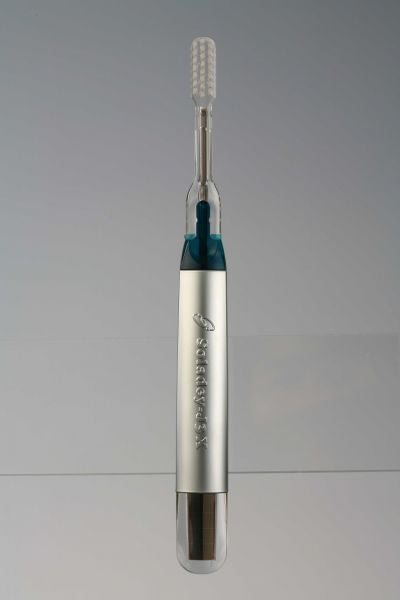Japanese scientists are collaborating with an oral health company on a revolutionary toothbrush that uses electricity to make teeth pearly white and does away with the need for toothpaste.
First dreamed up 15 years ago by Dr. Kunio Komiyama, who is now a professor of dentistry at Canada's University of Saskatchewan, the Soladey-J3X has a solar panel at its base that requires minimal amounts of light to transmit electrons to the head of the toothbrush through a titanium dioxide semiconductor embedded in the body.
Once there, the electrons react with acid that occurs naturally in the mouth, creating a chemical reaction that breaks down plaque and kills bacteria, according to Dr. Komiyama and his colleague, Dr. Gerry Uswak, dean of the university's College of Dentistry.
Prototypes of the cutting-edge device have been developed by Shiken Inc. - "shi ken" translates as "dental health" in Japanese - and research is underway.
To date, according to the Osaka-based company, tests in cultures of bacteria that cause periodontal disease have shown that the process brought about the "complete destruction of bacterial cells," as well as breaking down the plaque.
A study on 120 teenagers is presently underway to determine how they rate it in comparison with a regular toothbrush.
The gadget has already received the recognition of the oral care industry, winning first prize at the recent annual FDI World Dental Conference in Dubai, fighting off 170 other entrants.
Patents on the toothbrush have already been taken out in nine countries, including Japan, although the company says the product will not be released onto the market until the early months of next year. Price should be around 40 euros (4300 Japanese yen).
JR

Join our commenting forum
Join thought-provoking conversations, follow other Independent readers and see their replies
Comments